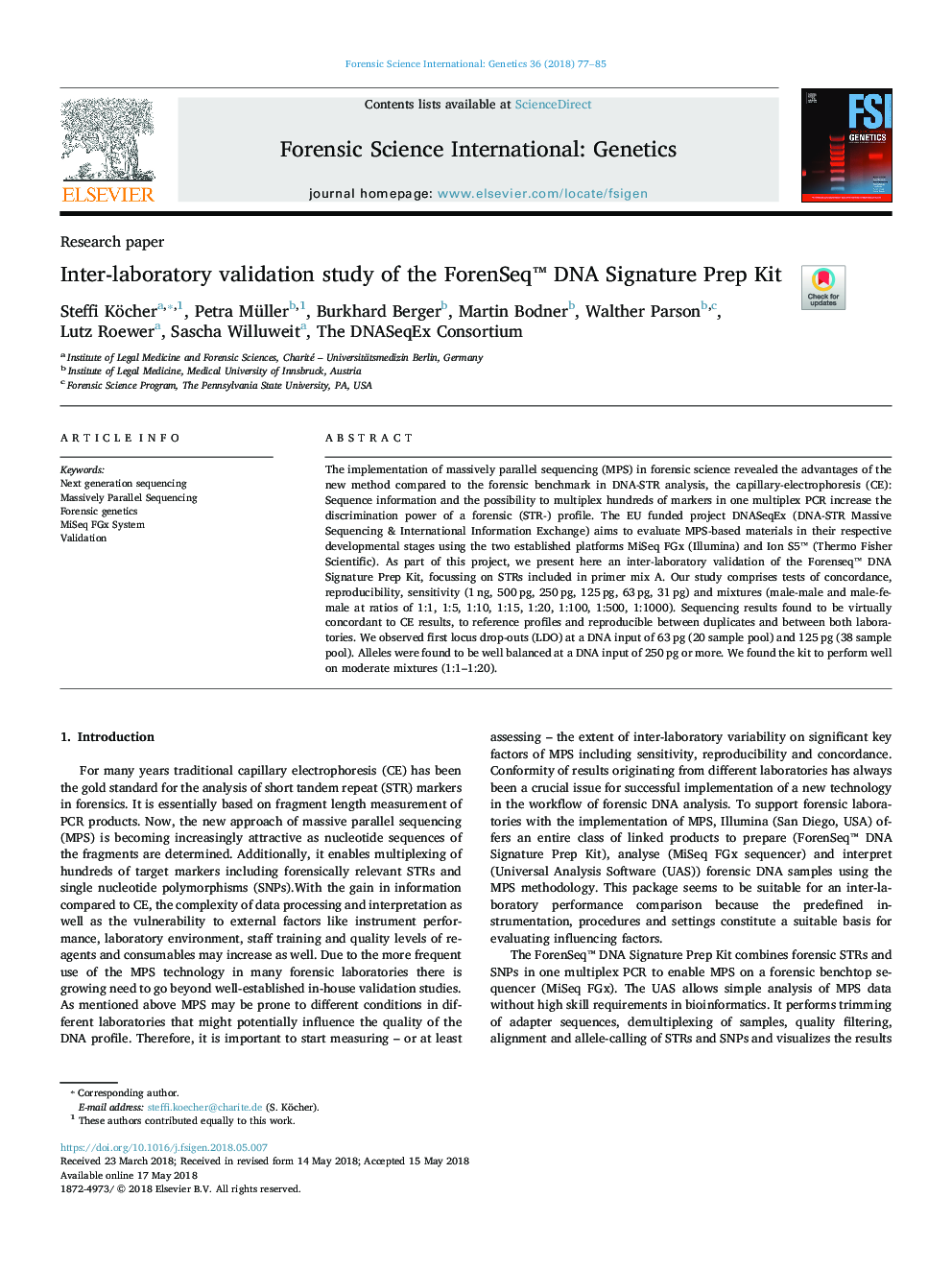| Article ID | Journal | Published Year | Pages | File Type |
|---|---|---|---|---|
| 6553188 | Forensic Science International: Genetics | 2018 | 9 Pages |
Abstract
The implementation of massively parallel sequencing (MPS) in forensic science revealed the advantages of the new method compared to the forensic benchmark in DNA-STR analysis, the capillary-electrophoresis (CE): Sequence information and the possibility to multiplex hundreds of markers in one multiplex PCR increase the discrimination power of a forensic (STR-) profile. The EU funded project DNASeqEx (DNA-STR Massive Sequencing & International Information Exchange) aims to evaluate MPS-based materials in their respective developmental stages using the two established platforms MiSeq FGx (Illumina) and Ion S5⢠(Thermo Fisher Scientific). As part of this project, we present here an inter-laboratory validation of the Forenseq⢠DNA Signature Prep Kit, focussing on STRs included in primer mix A. Our study comprises tests of concordance, reproducibility, sensitivity (1â¯ng, 500â¯pg, 250â¯pg, 125â¯pg, 63â¯pg, 31â¯pg) and mixtures (male-male and male-female at ratios of 1:1, 1:5, 1:10, 1:15, 1:20, 1:100, 1:500, 1:1000). Sequencing results found to be virtually concordant to CE results, to reference profiles and reproducible between duplicates and between both laboratories. We observed first locus drop-outs (LDO) at a DNA input of 63â¯pg (20 sample pool) and 125â¯pg (38 sample pool). Alleles were found to be well balanced at a DNA input of 250â¯pg or more. We found the kit to perform well on moderate mixtures (1:1-1:20).
Related Topics
Life Sciences
Biochemistry, Genetics and Molecular Biology
Genetics
Authors
Steffi Köcher, Petra Müller, Burkhard Berger, Martin Bodner, Walther Parson, Lutz Roewer, Sascha Willuweit, The DNASeqEx Consortium The DNASeqEx Consortium,
